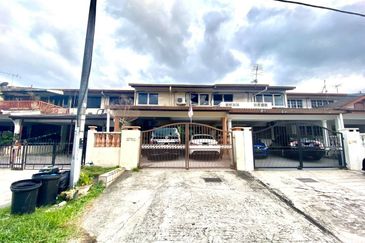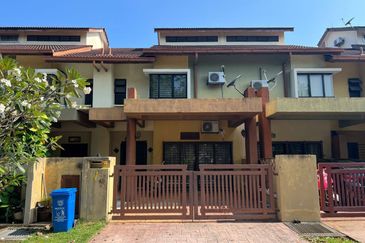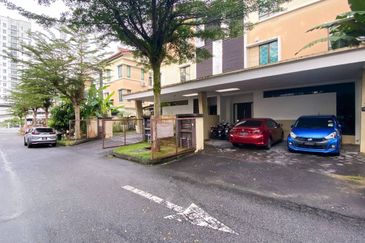
In our earlier article “Renovation: Get it right from the start”, we have discussed the emergence of the renovation industry due to the mass housing developments which fail to meet individual buyers’ needs.
The gist of renovation refers to varying the original design of the existing habitat or housing unit either by addition, omission, or a combination of both. Some common examples are kitchen extension, adding a bedroom upstairs, a study downstairs, widening the living area, etc.
For the benefit of owners considering renovation, the National House Buyers Association (HBA) offers the following cautionary pointers:
1. Consent from MC
In many gated-and-guarded stratified community schemes, the Management Corporation (MC) is vested the right to vet through the proposed renovation by a house owner in an attempt to preserve the neighbourhood from becoming “disjointed” and ‘”incohesive”.
Through the signing of the Deed of Mutual Covenants when the property is purchased from the developer, the MC is vested with the right to comment and approve on issues ranging from aesthetic, style of design, extent of works, colour scheme, height and how the surrounding environment would look like.
Nevertheless, HBA opines that despite the good intention of the MC to preserve the integrity of the neighbourhood, the Local Authority (LA) or “Majlis Tempatan” remains the only body to approve and comment on these issues. The MC in-house policies and procedures are subservient to the Local Authority laws like: Town and Country Planning Act, 1976, Uniform Building By-Laws, 1984 and a host of others.

Anyhow, house owners are advised to seek consultation with the MC in order to ease your paths to carry out these works through amicable arrangements.
2. Prerequisites
For houses (including those single-detached and individually built) completed with or having obtained Certificate of Fitness for Occupation (CFO), Certificate of Completion and Compliance (CCC) or Occupational Certificate (OC), they may commence their renovations subject to an approval from the LA for amendment(s) to the previously approved building plans.
As for the landed houses, such as terraced, semi-detached, superlinks, zero lot bungalows and even individually-built houses from the developer; ideally you may commence your renovation works after the attainment of CFO/CCC/OC.
However, clause 14 of the sale and purchase agreement (SPA), schedule G of the Housing Development (Control and Licensing) Regulations 1989 allows “renovation” to be carried out concurrently with the construction of the main body of the house based on your preferred specifications.
Should you choose to exercise this option of the SPA, it is paramount that you work out the detailed works and specifications to be incorporated into your housing unit while the main body of the house is in progress. Remember, the key issue is for the house owner to coordinate closely with the housing developer on these works.

3. Time and manner
For those who reside in gated-and-guarded stratified communities, it is important to check on the terms and conditions stated in the Deed of Mutual Covenant signed between the developer and purchasers/owners.
Essentially, for most gated-and-guarded communities, the MC would impose a deposit placement to enable it to utilise this fund to rectify non-compliances left behind by the building contractor engaged by the house owner such as building debris and waste materials, or damage of common properties such as roads and drains, etc, to preserve the integrity of the neighbourhood.
By understanding these conditions, the owner can impose the same on the building contractor at the engagement stage where a sum owing to the contractor is set aside to cater for the same.
For those who do not stay at gated-and-guarded communities, these non-compliances will expose the house owners to the fines and sanctions imposed by the LA. By the same token, a sum owing to the contractor is to be set aside to cater for the same, otherwise the authorities’ fines and sanctions will be borne solely by the owners for breaching the laws not caused by them but by their contractors.
Time for carrying out such renovations is stipulated by the MC as part of the approved conditions. This restriction is to ensure the construction works are limited to the day, where typical working hours would be 8.00am to 6.00pm from Monday to Friday and 8.00am to 1pm on Saturday, and no work is allowed to be carried on Sunday, a rest day for most of the residents.
Actually, similar time restrictions would also be imposed by the LA regardless of whether the property is within gated-and-guarded communities. This is to ensure the neighbourhood is not overtly burdened by construction activities that they become a nuisance to the neighbourhood especially during the evenings and weekends.
4. Aesthetics
This is meant for owners of terraced, semi-detached, superlinks and zero lot bungalows where indiscriminate renovations would render the neighbourhood “incohesive”, leading to the property being devalued.
Try to pay attention and be sensitive to the existing architectural aesthetics. Consult your designer/architect before venturing on renovations affecting the overall aesthetic/ outlook of the building.
5. Compliance with approved plans
Failure to follow the approved building plans strictly has accounted for many cases where the house owners fail to obtain CFO/CCC/OC for their renovation works.

In some cases, the owners have deviated from the approved drawings with/without consulting their architects and not following the requisite procedures for obtaining approvals on such amendments.
The end result is that they suffer setbacks and delays as they are imposed with hefty fines or penalties by the LA and slapped with “stop-work orders” on site until the proper procedures have been complied with.
HBA is a staunch believer of carrying out works in compliance with the requisite LA requirements to cut the unnecessary hassles from the authorities and delays, not to mention the hefty fines and penalties.
6. Financial outlay
Having the financial resources and capital outlay is crucial to the successful completion of the dream renovation works.
If at any instance, there is an interruption in the steady stream of money, the progress of the renovation would surely be affected. You should ensure that you do not bite off more than you can chew.
Datuk Chang Kim Loong is the Honorary Secretary-general of the National House Buyers Association (HBA) and Ar YS Ng, HBA’s technical advisor. HBA could be contacted at:
Email: [email protected]
Website: www.hba.org.my
Tel: +6012 334 5676
This story first appeared in the EdgeProp.my E-weekly on Oct 15, 2021. You can access back issues here.
Get the latest news @ www.EdgeProp.my
Subscribe to our Telegram channel for the latest stories and updates
TOP PICKS BY EDGEPROP

Idaman Residence
Iskandar Puteri (Nusajaya), Johor

Bougainvilla, Bukit Prima Pelangi
Bukit Prima Pelangi, Kuala Lumpur

Sungai Kapar Indah Industrial Zone
Kapar, Selangor

Taman Perindustrian USJ 1
Subang Jaya, Selangor

















hero.jpg?GPem8xdIFjEDnmfAHjnS.4wbzvW8BrWw)



